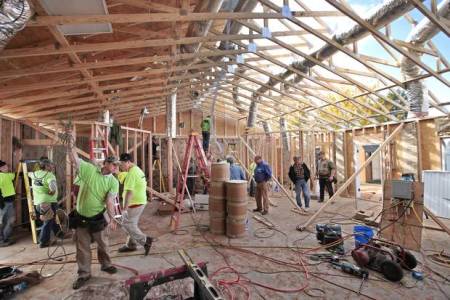Writing the History of a Local Church
 Monday, December 9, 2013 at 08:00AM
Monday, December 9, 2013 at 08:00AM  “There they go again, talking about how it used to be…what they used to do…stuff that happened to people that are dead and gone…funny names, dates of things a half-century ago. What does it have to do with me?”
“There they go again, talking about how it used to be…what they used to do…stuff that happened to people that are dead and gone…funny names, dates of things a half-century ago. What does it have to do with me?”
History is about people of long ago who were human beings like you and me. They wore funny clothes, had strange hairstyles, and bore names like Fannie, Bertha, Constantine and Aloysius. They talked of trains and trolleys, farmhouses and outhouses, brush arbors and tent meetings. They lived within the confines of their culture, but deep down, there’s really no difference between their generation and ours.
When you love people, you have a passion to know their history. We Pentecostals thrill at believers’ testimonies of their experiences with God, even though they happened a century ago. Every detail confirms the miraculous working of God’s power both in Bible days and in our own times. Their stories create a bond with us, and we see God from a new perspective.
Even more importantly, when we really examine who we are and how we have come to be, guess who we find in living color of the present? That’s right. We find all those same people we’ve squinted at in crinkled, sepia-toned photographs. We are mistaken to judge them as irrelevant or their lives boring. The truth is that their ideas, values, experiences, words, music and stories still exert untold influence on us. Their beliefs define the bulk of our present doctrine and faith. They are us and we are them. The more we know about them, the more we will know about us.
We have changed, of course. Our clothes, music, vocabulary, technologies, and so on, differ from them, but only superficially. The human commonality that joins us has not changed. They are our equals—neither less than nor greater than—but the same as us in all the important ways. We share bedrock beliefs. We are all souls saved by grace; we preach from the same Bible; we worship the identical God: Jesus Christ, the same, yesterday, today and forever!
If we wish our own memory to be cherished, then we must treasure the names, dates, people and events that comprise our past. Failure to value our history dooms us to be forgotten as well. Our decisions become the history of future generations, and we forge that history in our every act.
Here is a short list for compiling your local church history:
- Appoint a detail-minded person to be in charge and provide plenty of help.
- Collect and organize church bulletins, newsletters, flyers, news clippings, etc.
- Archive recordings of sermons and Bible studies and include an index in the history.
- Get copies of mortgage documents, bylaws, incorporation papers, etc.
- Solicit pictures from members and write the names of those photographed on the back.
- Record and transcribe oral histories from founding or eldest members.
- Get written testimonies of healings, miracles and great spiritual victories.
- Compile a list of all members’ names from the founding of the congregation.
- List all the awards and certificates of achievement earned by the congregation.
10. Ask pastors or evangelists who have a history with the church to share their memories.
11. Include anything else that has made your church unique over the years.
12. Announce the finished form of the effort ahead of time (book, CD, DVD, etc.)
13. Set a deadline.
As a final word, every church should begin to record present and future events with the creation of history in mind. Anniversaries, for example, give churches a chance to tell the story of the present. Revivals, conferences, concerts, special service weave meaning into the life of your church and fellowship. Don’t let people find meaning for themselves in someone else’s history. You have a history that needs to be recorded. If you have something to tell, tell it. If you have something to learn, ask. It is the stuff of heritage.

Reader Comments